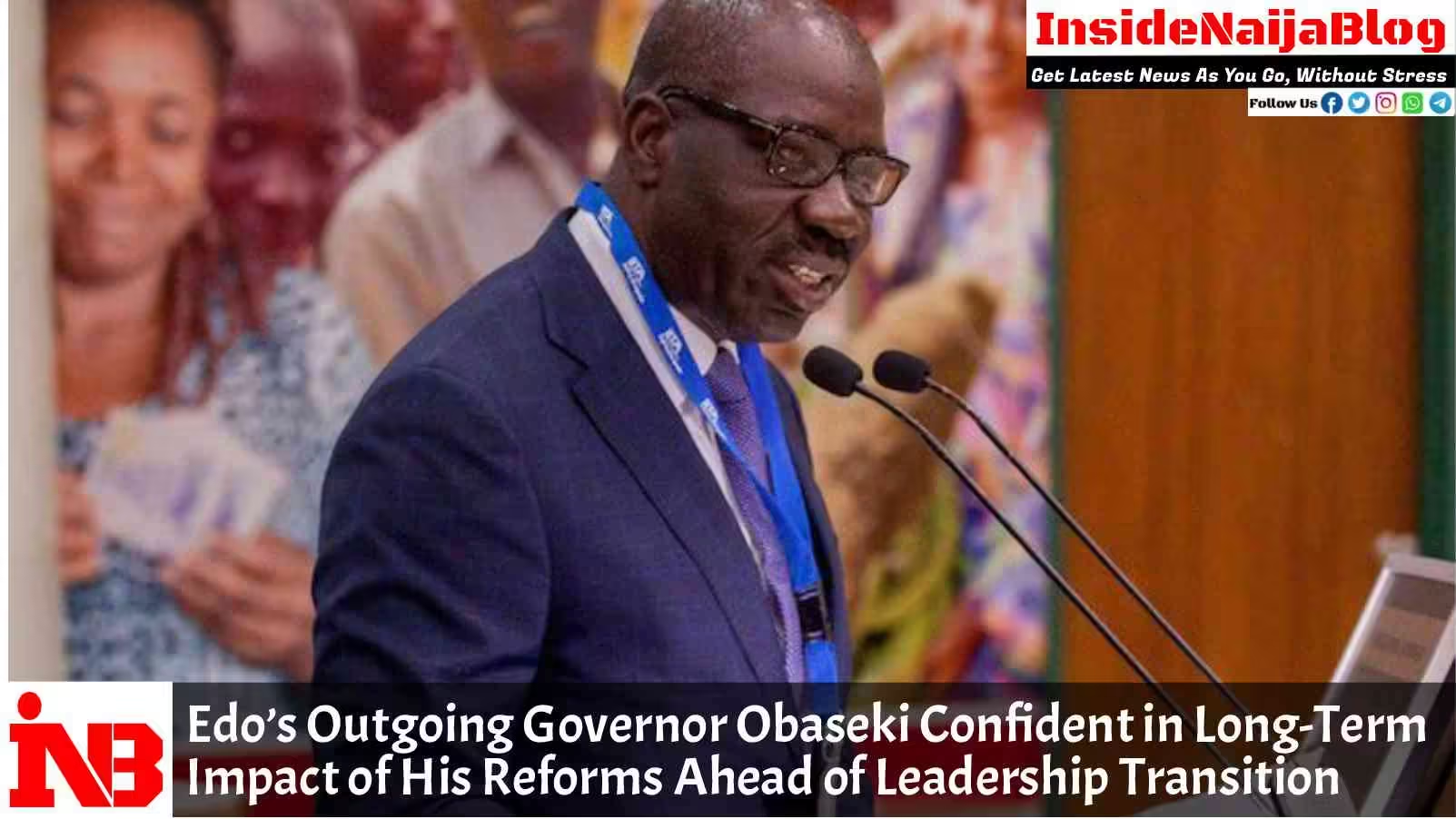As Governor Godwin Obaseki prepares to conclude his term on November 11, he has expressed confidence that the reforms he initiated during his administration will continue to shape Edo State, even as he passes the baton to governor-elect Monday Okpebholo. In a recent interview with journalists in Lagos, Obaseki highlighted the steps he has taken to institutionalize various reforms, which he believes will persist regardless of the incoming administration’s stance.
Obaseki noted that Edo residents are aware of the reforms implemented during his administration, and he expressed optimism that the people’s support for these initiatives would discourage any efforts to reverse them. “The people are very aware of our reforms and legacies,” he said, emphasizing the importance of community ownership in sustaining these changes. “Even if the incoming government doesn’t support or encourage them as we used to, they will not disappear.”
A significant aspect of Obaseki’s legacy is his focus on education, particularly through the EdoBEST (Edo Basic Education Sector Transformation) e-learning program, which has modernized education for many students across the state. He highlighted that parents and workers have seen tangible benefits from initiatives like EdoBEST, which he believes will ensure continued demand for their preservation. According to Obaseki, these programs have empowered people to advocate for their maintenance and improvement, even under a new administration led by the All Progressives Congress (APC).
During his tenure, Obaseki’s administration introduced reforms aimed at enhancing civil service integrity, infrastructure, connectivity, and electricity. He emphasized the importance of providing critical infrastructure, explaining that government’s role is to create an environment where citizens can thrive. He highlighted that electricity, connectivity, and roads are fundamental to Edo’s development and have been central to his policy agenda. “What are the critical infrastructures we need today? Fundamentally, in Nigeria, people need electricity, connectivity, and roads,” he said.
Through public-private partnerships, the state has achieved notable progress in electricity generation and distribution, with companies like Azura and Ossiomo Power establishing operations in Edo. This move has helped stabilize power for public institutions and infrastructure in metropolitan Benin City, enhancing the state’s electricity landscape. Obaseki also pointed to Edo’s strategic position as a core hub for electricity in Nigeria, citing its proximity to gas transmission lines and extensive onshore gas reserves. “Edo is the cheapest point to generate electricity,” he stated, adding that it costs about a million dollars per kilometer to build both gas and transmission pipelines in the region, a cost efficiency unique to Edo’s location.
Beyond electricity, Obaseki highlighted his administration’s commitment to expanding connectivity through extensive fiber-optic infrastructure. Recognizing that connectivity is essential in the modern era, his government prioritized building networks across all 18 local government areas in the state to ensure that Edo remains competitive and digitally accessible. He noted, “In today’s world, without connectivity, no country is going anywhere.”
Obaseki’s administration also placed emphasis on road infrastructure to improve the ease of movement and support economic growth. By focusing on a balanced combination of power, connectivity, and transportation, he believes that Edo’s development is well-positioned to continue even under the new leadership. His approach to institutionalizing these reforms aims to secure a legacy that aligns with the evolving needs of Edo’s population and the state’s unique geographical and economic advantages.
As he prepares to hand over to Okpebholo, who won the September 21 gubernatorial election, Obaseki remains optimistic about the future of Edo. He encouraged the incoming APC-led administration to build on his achievements, particularly in infrastructure, education, and electricity. He also expressed hope that the people of Edo would demand the continuity of initiatives that have positively impacted their lives, ensuring that the reforms he began are neither forgotten nor dismantled. With the foundation laid over the past years, Obaseki’s confidence suggests that his administration’s impact on Edo State’s infrastructure and social services may endure, providing lasting benefits to the state’s residents.




